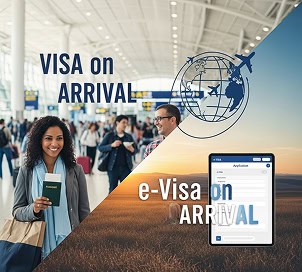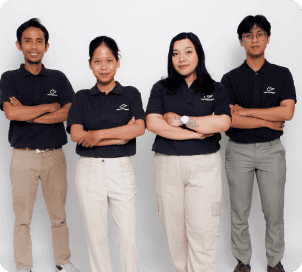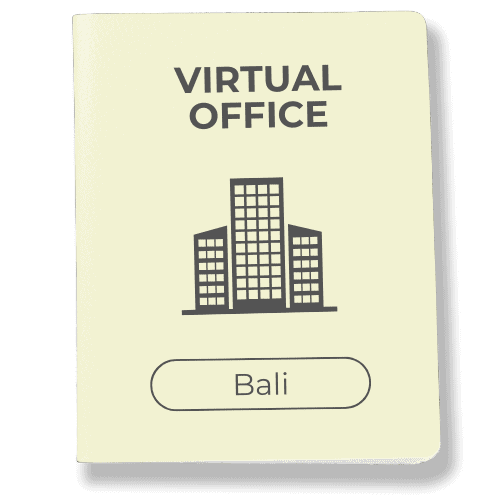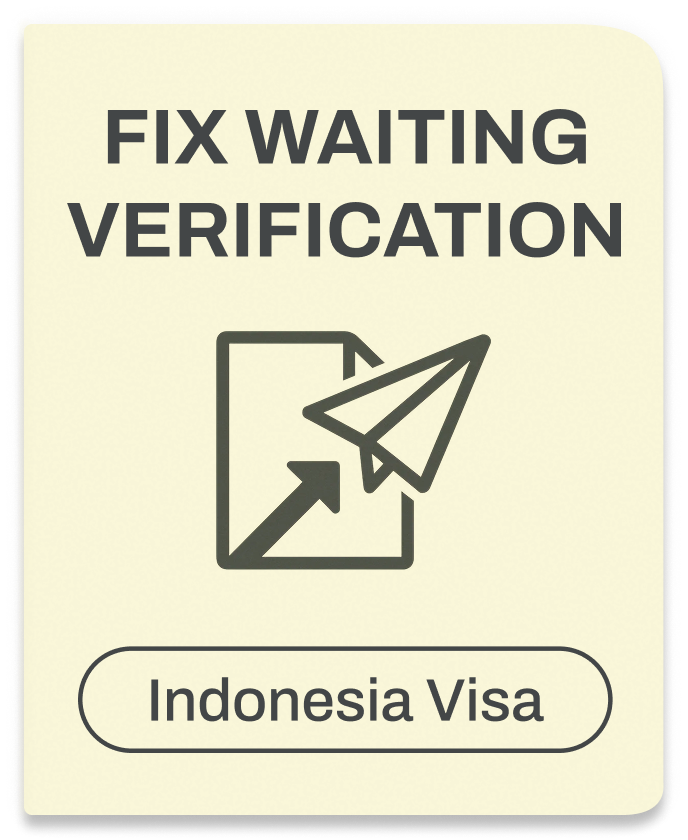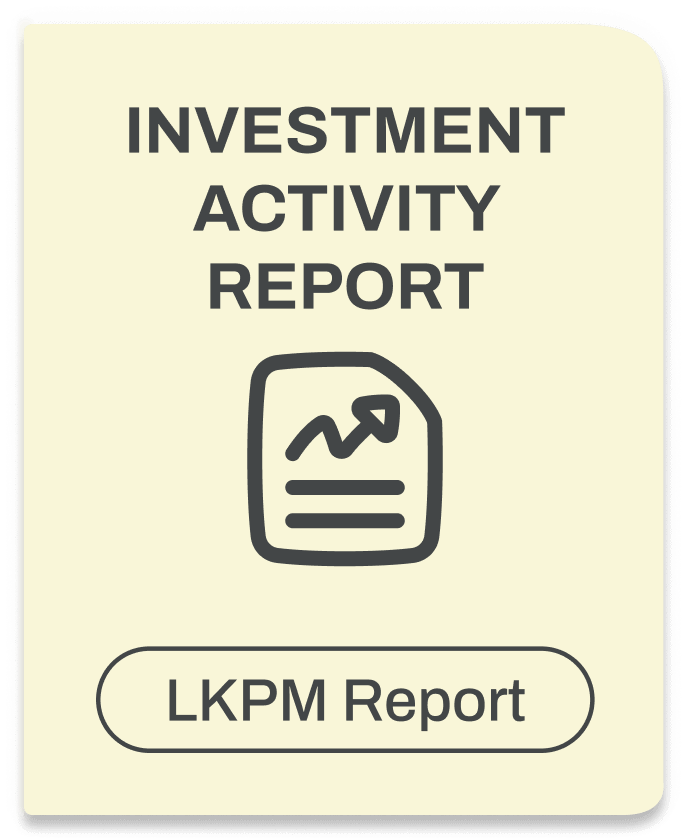KITAS vs KITAP: Don’t Apply Before You Read This

Moving to Indonesia means choosing between two look-alike permits that change your daily life in very different ways: KITAS (temporary stay) and KITAP (permanent stay).
Pick right and you save time, money, and paperwork; pick wrong and you’re stuck renewing, re-filing, and missing windows. In the next 3 minutes, you’ll learn what each permit really gets you: validity, work rules, fees, exit permits, and the must-do SKTT.
Then we’ll walk through who should start with KITAS, who can jump to KITAP, and when to convert without risking your status. Next up: a simple side-by-side.
Legal Framework for Stay Permits
The primary legal basis is Permenkumham No. 22/2023, covering visas and stay permits for foreign nationals. Amendments appeared in 2024.
PP No. 45/2024 contains current fee schedules, replacing PP 28/2019.
Official immigration office websites provide detailed information about permanent stay permit applications, KITAP conversion processes, and direct KITAP paths.
Table of Contents
KITAS vs KITAP: Side-by-Side Table
| Feature | KITAS / ITAS | KITAP / ITAP |
| Stay status | Limited (temp residence) | Permanent stay status |
| Typical validity | 1 to 5 years | 5 years to unlimited, extendable indefinitely |
| Work permission | Only if work-sponsored (role & sponsor-bound) | Mirrors your basis (spouse/investor/worker, etc.) |
| Re-entry | IMK/MERP aligned with ITAS | IMK/MERP aligned with ITAP |
| Switch sponsors | Requires new process | Depends on basis; still regulated |
| Fees (gov) | Rp6–12M (most cases) | Rp7M grant; ~Rp10.2M indefinite extension |
| Best for | Trying life/work in ID, fixed-term | Long-term residency & stability |
What is KITAS
A KITAS is a temporary stay permit, kind of like a trial pass for living in Indonesia. The Indonesian government issues it for a specified period: typically 6 months, 1 year, or 2 years. Then you handle the KITAS extension process. And extend again. For as long as you want to stay.
The primary categories depend on why you’re here.
- A work KITAS gives legal employment authorization.
- Spouse KITAS (often called a spouse visa by foreigners) connects you to Indonesian citizens through marriage.
- Family KITAS covers family reunification cases.
- Investment KITAS serves foreign investors putting money into Indonesian companies.
- Retirement KITAS welcomes people 55 or older.
- And the Remote Worker KITAS (E33G) lets you work online for overseas employers.
Here’s what matters: foreign workers can only work if their work permit and KITAS match their sponsor. The work authorization ties to specific roles. Remote workers with E33G cannot earn from sources within Indonesian territory. Indonesian law is clear on this.
International students studying at Indonesian educational institutions get their own KITAS types, too.
KITAS Perks
- Live in Indonesia for 6–24 months (renewable).
- Do what your KITAS is issued for (e.g., work, invest, spouse, retiree, or remote work).
- Open bank accounts, get a driver’s license, buy/own a vehicle, and enroll kids in school, usually doable once your local paperwork is set.
- Re-enter Indonesia during validity if your e-permit includes re-entry permission (IMK/MERP).
Obligations
- Keep a valid sponsor (employer, spouse, company, etc.) and follow the purpose of your KITAS.
- Register at Dukcapil for an SKTT (local residence letter) and keep it current; banks often require it.
- Taxes: if you earn Indonesia-sourced income (e.g., on a work KITAS), you’re generally taxed here; employers typically withhold, but complex cases → talk to a tax pro.
- Report changes (address, passport, marital status, employer/sponsor) and renew on time.
- Check your e-permit for IMK/MERP before traveling; don’t exit without the right re-entry rights.
If you plan to stay in Indonesia for more than a year, a KITAS usually comes with more perks than a regular visa. The catch is that the requirements can be more complicated. If you’d like a smoother process from day one, we can walk you through the KITAS application step-by-step.
What is KITAP
A KITAP, on the other hand, is the “long-term resident card.” It’s given to people who’ve already lived in Indonesia for a while and plan to stay for good.
Most foreign nationals can’t jump straight to KITAP. You typically need years of valid residence permits first. Marriage to Indonesian citizens, extended stays as foreign workers or foreign investors, retirement here, former citizenship, or having family members with KITAP, these open the path.
Perks
- Long-term stability: issued for 5 years and extendable indefinitely while you remain eligible.
- Fewer renewals and less admin; many tasks (banking, licensing, school enrollment) are simpler with KITAP.
- Eligible for KTP-OA (foreigner’s ID card) and KK-OA at Dukcapil, which smooths daily bureaucracy.
- Re-entry permission typically follows the KITAP validity (verify on your e-document).
Obligations
- Keep meeting the basis of your KITAP (spouse, employment/investor, retiree, etc.) and renew every 5 years.
- Maintain KTP-OA/KK-OA and update them when anything changes.
- Taxes: same principle, Indonesia-sourced income is taxable; get advice if you have multi-country income.
- Report changes promptly (address, passport, marital status, sponsor/employer).
- Follow Indonesia’s property rules (foreigners face separate limits regardless of permit type).
Converting Your Limited Stay Permit to Permanent Residency
KITAP isn’t a separate “apply-anytime” permit. You generally need a KITAS first and then convert. That’s why timing matters so much: when your documents and deadlines line up, the path is smooth; when they don’t, you may have to redo steps.
So when can you actually apply? That depends on your situation. Spouse KITAS holders married to Indonesian citizens usually qualify after about 2 years of marriage while holding valid residence permits. Foreign workers and foreign investors need more patience, typically several years of KITAS in Indonesia before they can make the leap.
The application itself starts online through the e-visa portal at evisa.imigrasi.go.id. You’ll submit your documents there, track your status, and wait for instructions. Once they’re ready for you, you’ll head to your local immigration office to complete biometrics and any remaining requirements.
Which KITAS/KITAP You Should Pick

Your situation determines which permit makes sense.
Marriage to Indonesian Citizens
Start with spouse KITAS through the spouse visa application process. After the required marriage period with a valid residence permit, convert to a permanent stay permit. Prepare marriage documents, and ensure your spouse has KTP and KK (family card) ready.
Foreign Workers in Indonesia
Obtain your work KITAS first. Your work permit and KITAS must match. After several years with the same sponsor, explore KITAP. Employers handle most visa application process steps, including RPTKA notifications. Set up tax numbers and BPJS.
Foreign Investors Building Here
Get investor KITAS (E28A) for your investment ventures. After holding valid residence permits while investing in Indonesian companies, you can pursue permanent residency. Prepare PT PMA documents and shareholding proof meeting thresholds.
Retirees Choosing Indonesia
At 55 or older, apply for a retirement KITAS. Kitap holders status might come later. Bring income proof, housing arrangements, and insurance documents.
Remote Workers from Your Home Country
The E33G Remote Worker KITAS fits digital nomads. Provide overseas employment contracts and income threshold proof. Remember: no earnings from Indonesian territory sources.
Specific Documents for Your KITAS Application Process

Paperwork varies by permit type. Here’s what you’ll typically need.
For any limited stay permit card:
- Valid passport
- Passport photos
- Supporting documents for your specific category
Work visa requirements:
- Employer documentation, including RPTKA or notifications
- Tax number registration
- BPJS enrollment for legal employment
Spouse KITAS or family KITAS:
- Marriage registration documents
- Indonesian spouse’s KTP and KK
- Family members’ documentation where applicable
Investment KITAS:
- PT PMA company papers
- Shareholding proof meeting Indonesian government thresholds
Retirement KITAS:
- Age verification (55+)
- Income proof
- Housing and insurance documentation
Remote Worker KITAS:
- Home country employer contract
- Income threshold verification
Everything not in Indonesian needs translation and legalization. Budget for these costs in your visa application process.
Common Mistakes Foreigners Make
Learn from these frequent errors.
Missing KITAP conversion deadlines. Waiting past 30 days before KITAS expires means you’ve lost your conversion window. Set reminders 60 days ahead.
Confusing visa with stay permit. Your visa gets you into Indonesian territory initially. Your stay permit (ITAS or ITAP) lets you actually live here for the specified period. Check your e visa portal to confirm current status.
Assuming exit permits work like before. Post-2024, exit permit validity aligns with your residence permit. No separate applications for each trip.
Ignoring local SKTT requirements. This registration isn’t optional. Dukcapil requires it, and you can’t apply for KITAS or KITAP without it.
Want the SKTT process to feel less confusing? We can help with SKTT applications in Badung, Denpasar, and Ubud. You simply fill out our form, upload the needed documents, and we’ll take it from there. Turnaround is typically about 5–7 working days.
How to Apply for KITAS / KITAP (DIY)
Follow these steps whether pursuing KITAS or KITAP.
Step 1: Determine which category fits your situation. Work? Spouse? Investor? Retirement? Remote work?
Step 2: Gather specific documents. Use the checklists above based on your chosen path.
Step 3: Apply online through the e-visa portal at evisa.imigrasi.go.id. Monitor your application status there.
Step 4: Complete biometrics and document verification at your local immigration office when instructed.
Step 5: Receive your e-ITAS or e-ITAP. Verify IMK/MERP details are correct.
Step 6: Register at Dukcapil for SKTT within their deadline. This step is mandatory under Indonesian law.
Why Apply KITAS/KITAP Through Visa-Indonesia.com?
You shouldn’t have to learn immigration to live in Indonesia. Hand us the paperwork. Keep your life moving.
Here’s what happens when you chat us and check out
- We pick the right permit for you (worker, spouse, investor, or student).
- We get the forms right: docs, details, translations, the lot.
- We file and follow up with Immigration and keep you posted.
- We finish the after-approval bits (SKTT, reporting) so you stay compliant.
Why choose us
- Government fees are non-refundable; we help you avoid costly do-overs.
- We confirm eligibility before any payment.
- Transparent pricing. One clear quote; government fees listed separately. No surprises.
- Edge cases welcome. Sponsor changes, name mismatches, old overstays, move of address. We untangle the messy bits.
- Aftercare that actually cares. Reminders for SKTT, renewals, and reporting. So you stay compliant year-round.
Quick Answers About KITAS and KITAP
Is KITAP really permanent? Permanent stay permit cards are issued for 5-year periods, but KITAP holders can extend indefinitely if eligibility criteria remain met. Essentially, yes, you can stay in Indonesia indefinitely.
Can I work on spouse KITAP? Work authorization depends on your specific basis and current labor regulations. Don’t assume; verify with the Ministry of Manpower for legal employment clarification.
When should I convert my temporary stay permit? Apply within 30 days before your KITAS expires. That’s your conversion window.
Do I need exit permits still? Exit permit validity now matches your stay permit duration. Check your electronic documents for current IMK status.
Is SKTT really required? Most regions require it for all KITAS holders and KITAP holders. Check your local Dukcapil page for specific requirements.
What’s the difference between the KITAS types? Different categories serve different purposes, work permits for foreign workers, spouse visa for marriage to Indonesian citizens, family KITAS for family reunification, and so on. Each has specific eligibility criteria.
Ready to Apply or Extend Your Visa?
Let our visa specialists handle your application.


